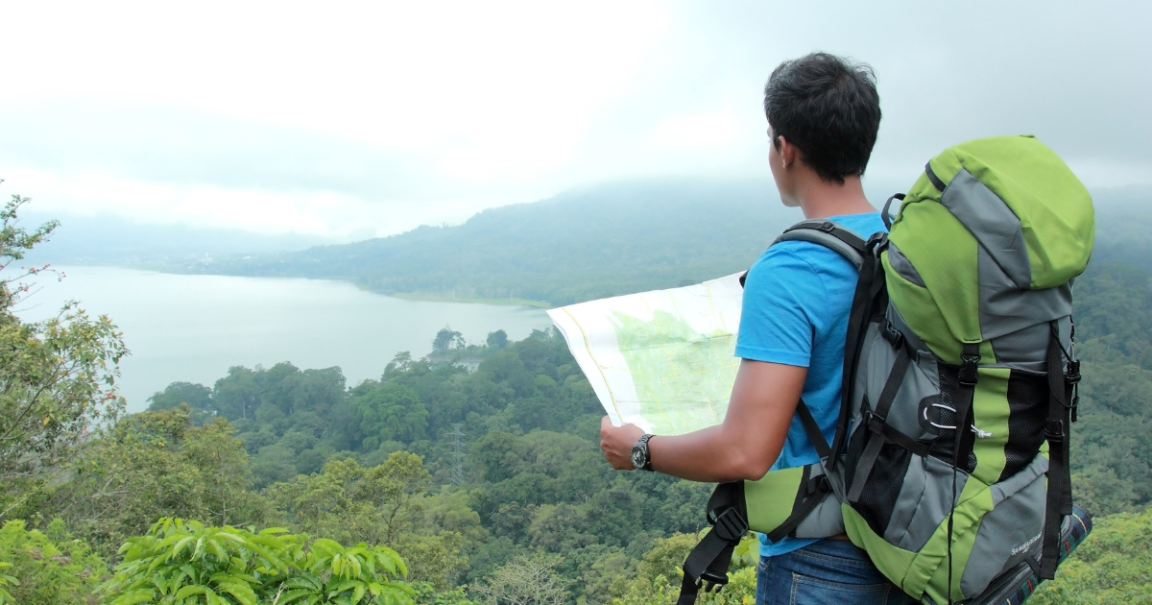Imagine yourself hiking up a rugged mountain trail, surrounded by breathtaking views, the scent of pine in the air, and the crunch of gravel underfoot. Now imagine doing it all while wrestling with an uncomfortable, poorly designed backpack. Backpacking backpacks are more than just bags; they’re essential tools that carry your gear, keep it organized, and ensure your comfort over miles of trails. With the right combination of capacity, weight, comfort, and durability, the best hiking backpacks make long treks a joy rather than a struggle. This guide will explore the top backpacking backpacks available and help you choose the perfect one for your adventures.
Key Considerations When Choosing a Backpacking Backpack
Choosing the right backpack involves more than picking the one that looks the coolest. Here are the key factors to consider:
1. Capacity
The size of your backpack is one of the most important considerations when choosing the right one for your hiking needs. The capacity of a backpack is typically gauged in liters, with the optimal size varying based on the duration of your hikes and the quantity of gear you intend to bring along. For day hikes, a smaller 20-30 liter pack is typically sufficient to hold essentials like water, snacks, and a light jacket. However, for multi-day trips where you’ll need to carry more gear like sleeping bags, food, and extra clothing, a pack between 50-70 liters is usually necessary.
It’s essential to think about the average duration of your hikes and the gear requirements, so you don’t end up with a bag that’s either too large or too small. When selecting the right capacity, remember that a larger pack doesn’t always equate to better performance. If you pack more than you need, you’ll carry unnecessary weight, leading to discomfort and fatigue on the trail. A well-sized backpack helps you stay organized and balanced while hiking, as it encourages only packing what’s essential. If you’re unsure of your needs, opting for a pack with adjustable compartments can give you more flexibility for different trips. In short, consider your hiking style and trip length to select the appropriate size.
2. Weight
Your backpack’s weight determines your comfort, particularly during prolonged treks. Overburdening yourself with a hefty pack on a long journey can cause back strain, exhaustion, and even potential injuries, making lightweight designs a wise and necessary choice. Today’s technology allows ultralight packs that make long treks much more manageable without sacrificing strength or functionality.
Although lighter backpacks are becoming more common, finding a balance between weight and features is essential. While ultralight packs may seem ideal, they often sacrifice organizational compartments or durability for weight savings. For particular hikers, this can reduce the practicality of trekking, particularly when quick access to gear is required or when managing heavier loads becomes necessary. Therefore, choosing a pack that meets your weight preferences is essential but provides enough structure and compartments to keep your gear organized and safe. By carefully selecting the right combination of weight and design, you can ensure that your pack enhances your hiking experience without slowing down.
3. Comfort
Comfort is non-negotiable when choosing a hiking backpack, especially for long-distance hikers who will spend hours carrying their gear. A well-fitting pack that offers excellent comfort will ensure you can focus on enjoying the hike rather than dealing with back pain or discomfort. One of the most essential elements to consider is the pack’s fit, which includes torso length and the adjustability of shoulder straps and the hip belt. Achieving the right fit allows the backpack’s weight to be balanced evenly, minimizing stress on your shoulders and safeguarding your back from discomfort. Selecting a backpack that suits your body type and allows for easy adjustments as your hiking conditions change is critical.
In addition to a good fit, the suspension system plays a significant role in overall comfort. The suspension system keeps your pack’s weight evenly distributed across your body. Several options are available: internal frames are great for stability and support, external frames work well for carrying heavier loads, and frameless designs are perfect for ultralight backpackers who prefer minimalism. Another vital comfort feature to consider is ventilation. Hiking can cause excessive sweating, especially during long treks, so backpacks with mesh back panels promote airflow and keep your back cool. Studies have shown that proper ventilation reduces discomfort and helps maintain a more pleasant hiking experience.
4. Durability
Durability is a key factor to consider when selecting a hiking backpack. Trails can be challenging on gear, with rough terrain, scratches, and weather conditions all taking their toll. Your backpack should endure these elements without noticeable wear. Look for backpacks made from high-quality, abrasion-resistant materials like ripstop nylon or Cordura fabric, which are known for their durability. Reinforced stitching and heavy-duty zippers are also essential to prevent damage over time, especially on backpacks that will see frequent use. A well-built pack can last years, saving you money and ensuring reliable performance.
The durability of your backpack doesn’t just depend on the materials; the construction is just as important. A backpack with solid stitching and attention to detail in areas prone to stress, like the seams and zippers, will last much longer than one made with cheaper methods. A high-quality pack should also withstand weather conditions, from rainstorms to intense sun. Some packs have added features like water-resistant coatings or removable rain covers to protect your gear. Making sure your backpack is durable enough to withstand the demands of the trail not only spares you the hassle of repairs or replacements but also offers peace of mind throughout your journey.
5. Features
The features of a backpack can significantly enhance your hiking experience by making it easier to organize and access your gear. An efficiently crafted backpack features an array of compartments and pockets, enabling you to manage and retrieve essentials like snacks, maps, or first-aid supplies without rummaging through the entire load. Some backpacks even have specialized pockets for electronics or gear like trekking poles. The organization is essential for long trips when you need quick access to certain items without unpacking everything.
Hydration compatibility is another essential feature to consider. Many modern backpacks come with a built-in sleeve for a hydration reservoir, allowing you to easily carry water and drink without stopping. This feature is especially valuable during long hikes, where staying hydrated is crucial. Other handy extras include rain covers, which protect your pack from getting soaked during lousy weather, and compression straps that help you reduce pack volume and keep gear tightly secured. Trekking pole attachments are also helpful for those who prefer poles on the trail, offering a convenient way to store them when not in use. These features work together to make your hiking experience more enjoyable and efficient.
Top Picks for Best Backpacking Backpacks
1. Osprey Atmos AG 65 / Aura AG 65
The Osprey Atmos AG 65 (or Aura AG 65 for women) is the best overall hiking backpack due to its exceptional comfort and innovative design. Key features include the AntiGravity suspension system, which offers excellent ventilation and supports a well-balanced load distribution. Whether tackling a weekend escape or a multi-day trek, this pack keeps your back at ease, even during the steepest and most demanding climbs. Although it comes at a higher price point and is relatively heavy compared to other models, its durability and comfort make it a top contender for serious backpackers. Overall, the Osprey Atmos AG 65 combines the best of design, durability, and comfort, making it a reliable choice for all types of hikers.
2. REI Co-op Trailmade 60
The REI Co-op Trailmade 60 offers an outstanding balance of affordability and functionality, making it a top pick for those wanting quality performance on a budget. This pack offers excellent value at an affordable price of $179, providing solid comfort and a well-organized design for its price range. The adjustable fit and decent organizational features ensure that hikers can carry their gear comfortably without breaking the bank. However, the pack uses cheaper materials, and its overall feel lacks the premium quality of more expensive models. Despite these drawbacks, the REI Co-op Trailmade 60 is an excellent choice for beginner hikers or those looking for a reliable, affordable option.
3. Hyperlite Mountain Gear Southwest 55
The Hyperlite Mountain Gear Southwest 55 is the go-to choice for ultralight enthusiasts who prioritize weight savings above all else. With its minimalist design and lightweight yet durable materials, this pack excels in performance and strength, making it perfect for hikers aiming to shave ounces off their gear. The Southwest 55 is extremely lightweight, making it ideal for fastpackers and through-hikers who need to carry minimal weight. However, it does come with a high price tag and lacks the extensive organizational features of some other backpacks, which may be a downside for those who prefer more compartments. Still, the Hyperlite Mountain Gear Southwest 55 is a top choice for those who prioritize speed and efficiency.
4. Gregory Baltoro 75 / Deva 70
The manufacturers designed the Gregory Baltoro 75 (and Deva 70 for women) for hikers carrying heavy loads over long distances, providing exceptional support and extensive organizational features. The backpack’s robust frame and well-padded straps evenly distribute even the heaviest loads, maximizing comfort. Gregory built this pack to endure rugged terrain and long trips, making it perfect for multi-day hikes or expeditions requiring a significant amount of gear. However, due to its size and construction, the Baltoro 75 is on the bulkier and heavier side, which might be a turn-off for ultralight backpackers. Nonetheless, this pack is a top contender for heavy-duty backpackers who value durability and support.
5. Osprey Exos 58 / Eja 58
The Osprey Exos 58 (and Eja 58 for women) perfectly balances comfort, ventilation, and lightweight materials, making it a versatile option for most backpackers. With a design focused on carrying comfort and breathability, this pack allows for long-distance hiking without the burden of excessive weight. It is slightly heavier than ultralight models but offers superior comfort, making it ideal for hikers looking for the best of both worlds. While it’s not as light as some minimalist backpacks, the Osprey Exos 58 still offers ample room and a comfortable fit for long treks. Whether you’re a seasoned hiker or a beginner looking for a reliable all-around pack, the Exos 58 is a fantastic option that doesn’t compromise comfort.
Find Your Perfect Trail Companion
The right backpacking backpack is more than just a gear; it’s your partner on the trail. A backpack is perfect for prioritizing lightweight design, heavy-load capacity, or inclusive sizing. When choosing, consider factors like capacity, weight, comfort, durability, and additional features. Each backpack in this guide has been carefully selected based on expert reviews and user feedback to ensure you find the best adventure option.



